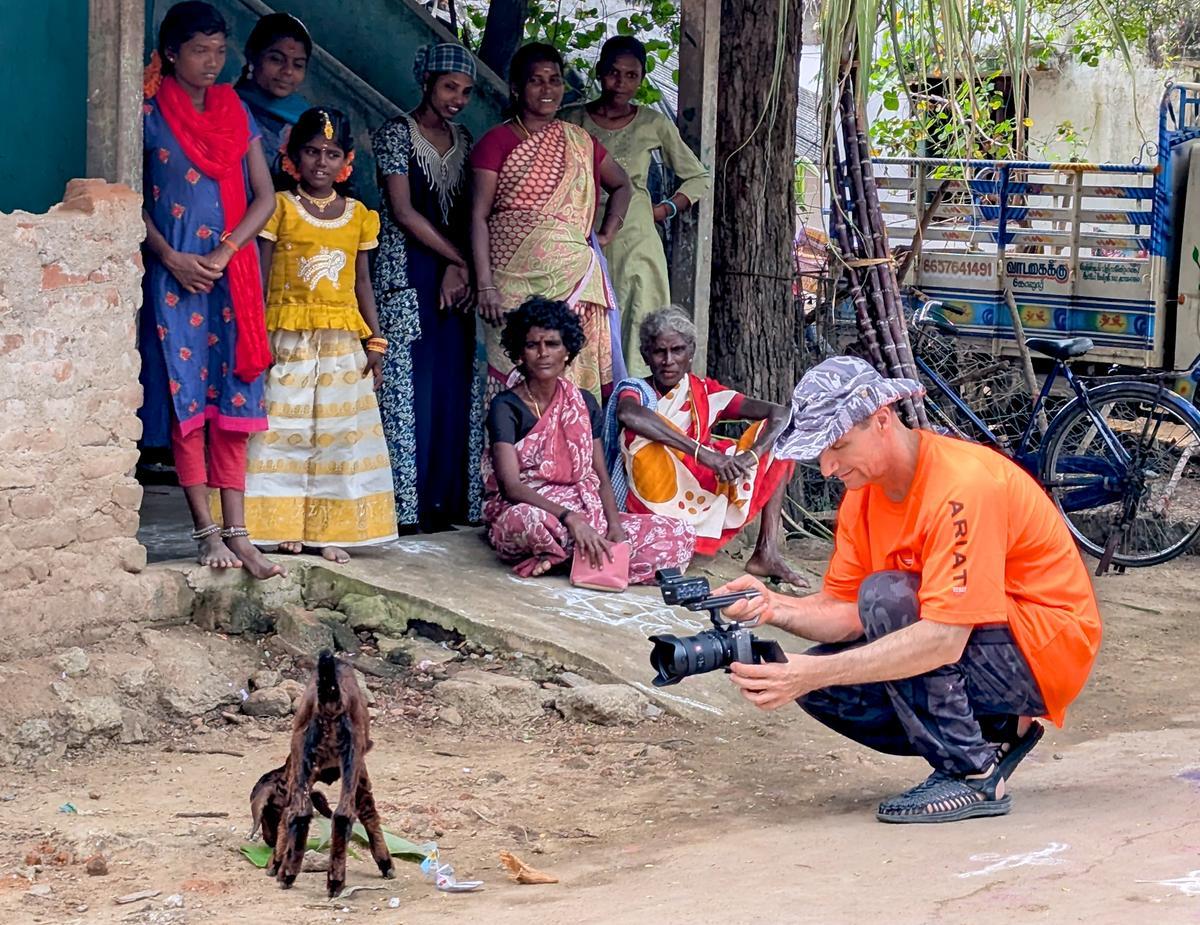The Role of Women in Tamil Society: From Ancient Times to Today

The role of women in Tamil society has transformed over centuries, reflecting changes in economic, cultural, and social landscapes. Tamil women, from ancient times to the modern day, have contributed immensely to various aspects of society, such as politics, education, art, and spirituality. By tracing the journey of Tamil women across history, we can understand their resilience, strength, and how they have navigated changing expectations while leaving lasting legacies.
1. Ancient Tamil Women: Leaders, Scholars, and Poets
In ancient Tamil society, women held influential roles and were respected for their contributions to literature, governance, and spirituality. During the Sangam period (approximately 300 BCE to 300 CE), women were celebrated for their intelligence, leadership, and poetic skills. Ancient Tamil texts, such as the Sangam literature, provide insight into women’s lives, showcasing them as independent, educated, and deeply respected members of society.
Women as Poets and Scholars
One of the most renowned figures of ancient Tamil literature is Avvaiyar, a female poet known for her wisdom and wit. Her works, which range from moral teachings to social observations, remain revered in Tamil culture. Avvaiyar’s poetry, included in Sangam literature, often speaks of justice, humanity, and values, transcending her era to leave a legacy that influences Tamil identity today. Female poets like her and Nachiyar Thirumozhi authored works reflecting their emotional, intellectual, and social experiences, and these writings depict women as respected intellectual equals within Tamil society.
Leaders and Warriors
Tamil women in ancient times were not confined to domestic roles. Queens and noblewomen frequently engaged in diplomacy, administration, and sometimes warfare. In Sangam-era texts, references to women warriors and advisors highlight the breadth of roles they occupied. Rani Mangammal, a queen in Tamil Nadu during the 17th century, is celebrated for her astute governance and welfare initiatives. Her legacy shows that women, even during feudal times, could rise to power and make decisions impacting society on a grand scale.
The depiction of strong female characters in Tamil epics like Silappatikaram, which tells the story of Kannagi, a woman who avenges her husband’s wrongful death, reflects societal respect for women’s sense of justice and moral fortitude. The character of Kannagi became a cultural symbol of righteous anger, justice, and devotion, embodying virtues that Tamil women could aspire to.
2. The Medieval Period: Spirituality and Societal Influence
In medieval Tamil society, the role of women expanded into spirituality and social reform. The rise of Bhakti (devotional) movements between the 7th and 12th centuries saw a significant presence of women saints, devotees, and poets, who influenced Tamil spirituality and literature. Female saints like Andal emerged as central figures in the Bhakti movement, revered for their deep devotion to the deity Vishnu and their poetic contributions to Tamil literature.
Women Saints and Devotees
Andal, the only female Alvar (a group of Tamil poet-saints devoted to Vishnu), composed beautiful hymns expressing her divine love for Vishnu. Her works, such as Thiruppavai and Nachiyar Thirumozhi, remain essential in Tamil Hindu practices and are recited during religious festivals. Andal’s life and writings serve as a testament to the respect Tamil society afforded women’s religious devotion, allowing them to shape spiritual discourse.
Social Reform and Influence
During this period, women also played roles in education and social welfare. Many Tamil temples and religious institutions ran schools where women could gain literacy and learning, especially if they were from noble or affluent families. Additionally, women participated in philanthropy, funding public works like water tanks, roads, and other infrastructure that benefited communities.
3. Colonial Era: Resilience Amidst Challenges
The colonial period in Tamil society (from the 18th century to mid-20th century) introduced a new set of challenges and opportunities for Tamil women. British colonial rule brought changes in economic and social structures, affecting Tamil women’s lives significantly.
Economic Challenges and Labor Migration
The British often recruited Tamils as laborers on plantations in places like Sri Lanka, Malaysia, and South Africa. Many Tamil women were sent to work as indentured laborers under harsh conditions, separated from their homeland. These women faced immense challenges, from labor exploitation to cultural isolation, yet they displayed resilience by forming community networks and cultural organizations that kept Tamil traditions alive.
The Rise of Women’s Education and Reform Movements
During the colonial period, the push for women’s education began gaining traction in Tamil society. Educated Tamil men and women recognized the importance of educating women for social progress. Leaders like Dr. Muthulakshmi Reddy, the first female legislator in British India, advocated for women’s rights and played a key role in the social reform movement. She campaigned against the devadasi system (a traditional practice where young girls were dedicated to temples) and established institutions that promoted women’s health and education.
Reform movements began addressing issues such as widow remarriage, child marriage, and dowry. Women leaders emerged to advocate for social change, and many Tamil women took part in India’s independence movement. Figures like Rukmini Lakshmipathi were active participants, and Tamil women played a pivotal role in boycotting British goods, organizing protests, and raising funds for the freedom struggle.
4. Post-Independence: Tamil Women in Modern Society
The years following India’s independence in 1947 brought new opportunities and challenges for Tamil women. As Tamil Nadu progressed economically, socially, and politically, women began playing more visible roles in fields like education, healthcare, arts, and public administration.
Advances in Education and Professional Development
Post-independence, Tamil Nadu saw a significant increase in educational opportunities for women, thanks to government reforms and a growing emphasis on higher education. Women from Tamil Nadu began to pursue careers in medicine, engineering, education, and law, fields that were previously male-dominated. Government initiatives and scholarships helped make education accessible, contributing to a generation of well-educated Tamil women who excelled in various professional fields.
Political Representation and Social Leadership
In the political arena, Tamil women continued to make strides. Figures like J. Jayalalithaa, who served multiple terms as the Chief Minister of Tamil Nadu, demonstrated the leadership potential of Tamil women. Known for her charisma, strong leadership, and commitment to social welfare, Jayalalithaa inspired many Tamil women to participate in politics and public life.
Tamil women also became active in social and environmental movements, championing causes such as rural development, women’s rights, and environmental protection. Many women’s self-help groups (SHGs) have empowered rural women by promoting entrepreneurship and financial independence.
5. Tamil Women in the Diaspora: Preserving Culture and Achieving Success
The Tamil diaspora has expanded to countries worldwide, and Tamil women have played essential roles in preserving Tamil culture and contributing to their adopted communities.
Cultural Preservation and Community Building
In countries such as Canada, the United States, the United Kingdom, and Australia, Tamil women have taken active roles in organizing cultural programs, Tamil language schools, and religious events. These efforts help younger generations of Tamil immigrants connect with their cultural heritage. Festivals like Pongal and Deepavali are celebrated with vigor in Tamil diaspora communities, often with women leading the organization of events, food, and rituals.
Achievements in Diverse Fields
Diasporic Tamil women have excelled in various fields, including technology, healthcare, academia, and business. Notable Tamil women, such as Sujatha Gidla, an Indian-American author and railway conductor, have gained international recognition for their contributions. The achievements of Tamil women in the diaspora reflect their adaptability, resilience, and ability to excel in diverse, multicultural environments.
6. Challenges Facing Tamil Women Today
Despite progress, Tamil women continue to face social, cultural, and economic challenges in contemporary society.
Gender Inequality and Societal Expectations
Tamil women still encounter societal pressures regarding marriage, family responsibilities, and career choices. In many communities, traditional expectations around marriage and motherhood can limit women’s choices, impacting their career prospects and personal aspirations. Furthermore, issues such as dowry, domestic violence, and gender discrimination remain prevalent, posing barriers to women’s autonomy and empowerment.
Balancing Tradition and Modernity
As Tamil women pursue careers, education, and personal development, they often face the challenge of balancing traditional values with modern lifestyles. Younger Tamil women, in particular, may experience generational conflicts with family members over choices related to career, relationships, and lifestyle.
The Struggle for Equal Opportunities
Despite advances, Tamil women, especially in rural areas, continue to face economic inequality and limited access to opportunities. Many rural Tamil women work as agricultural laborers or in informal sectors, where job security and fair wages are lacking. Government and NGO initiatives are helping bridge these gaps, but the struggle for equal opportunities remains ongoing.
7. The Future of Tamil Women: Empowerment and Leadership
Looking forward, the future for Tamil women appears bright, with continued advancements in education, healthcare, and economic opportunities. Organizations and social movements are empowering Tamil women by providing resources for education, health, and entrepreneurship.
Education and Digital Literacy
As technology continues to advance, digital literacy will be crucial for the future of Tamil women. Access to online learning platforms, vocational training, and digital resources can empower Tamil women to pursue higher education and competitive careers, particularly in rural areas.
Social and Economic Empowerment
The growth of women’s self-help groups and microfinance initiatives has given many Tamil women the opportunity to start their own businesses, fostering economic independence. Additionally, initiatives promoting women’s health, maternal care, and mental health are essential for supporting Tamil women in all stages of life.
Conclusion
Tamil women have traveled a remarkable journey from the ancient Sangam period to the modern world, proving their strength, resilience, and capacity to adapt and lead. Their contributions to literature, politics, education, and culture have not only enriched Tamil society but also set examples for future generations. As they continue to balance tradition and modernity, Tamil women will remain central to the evolution of Tamil identity, inspiring progress and pride across the Tamil-speaking world.






